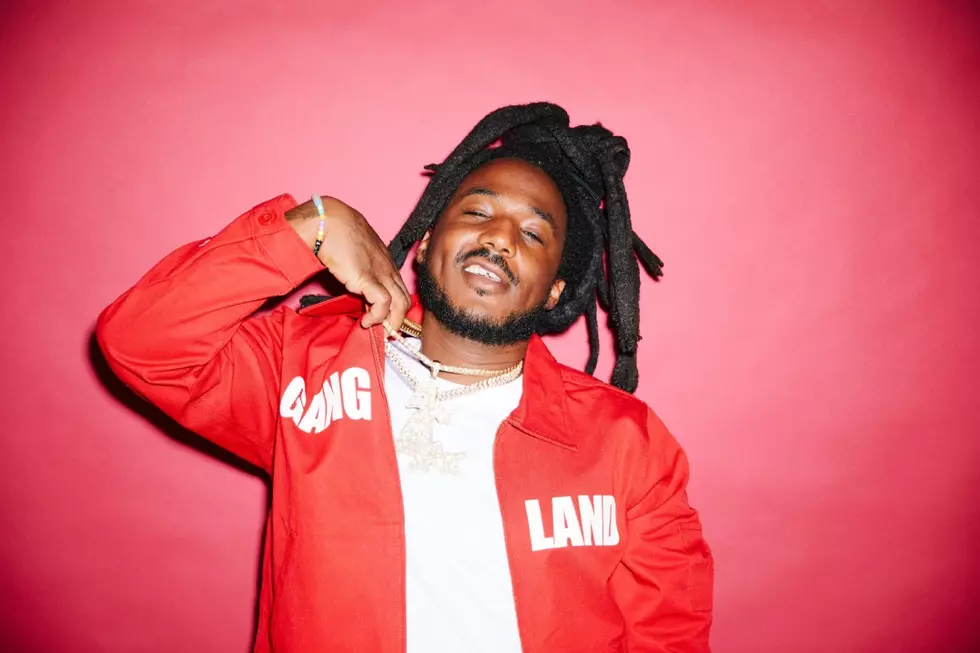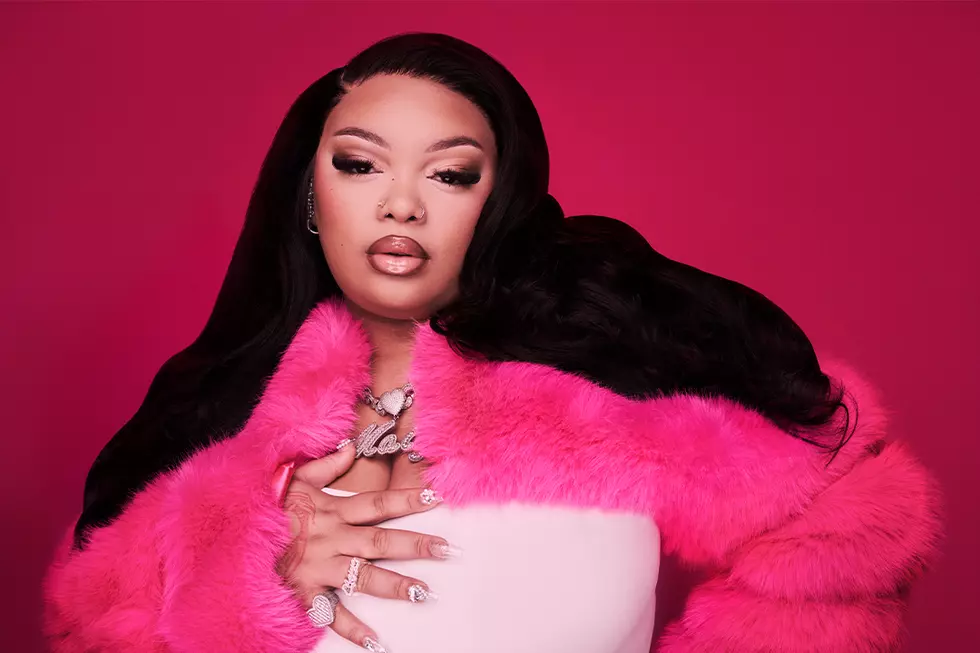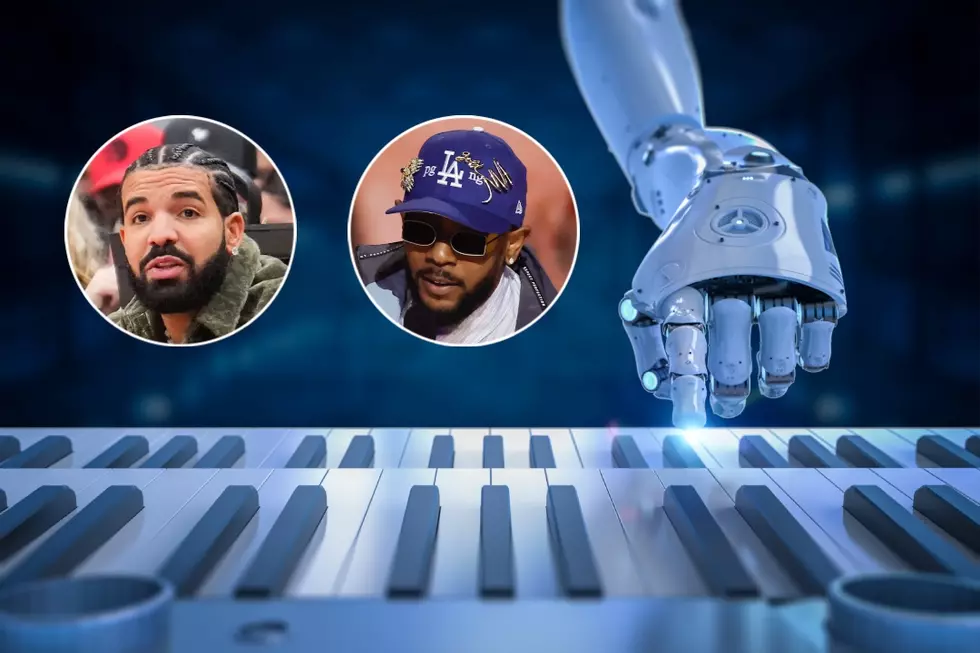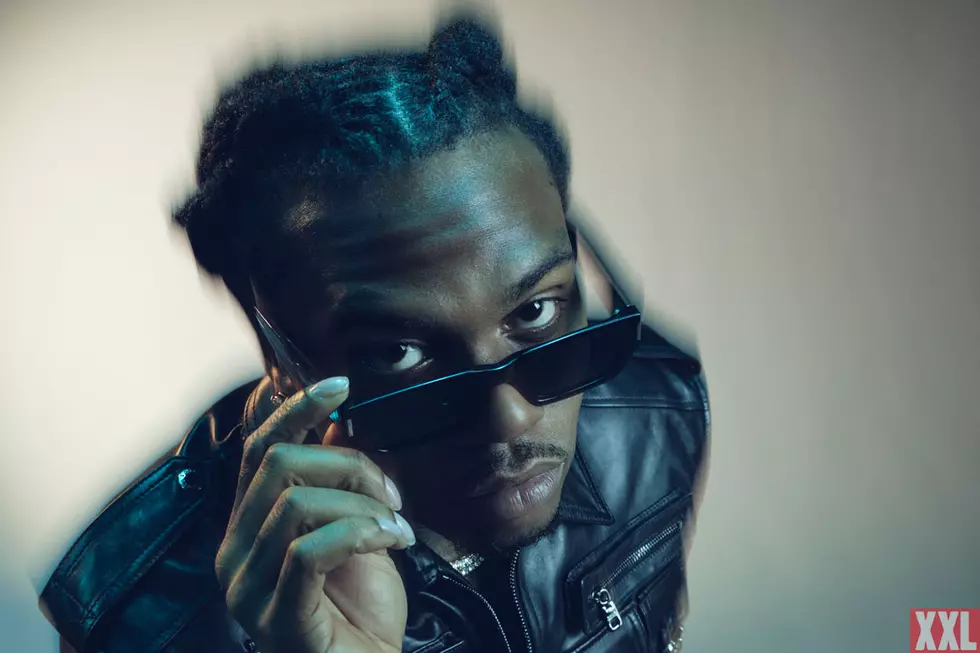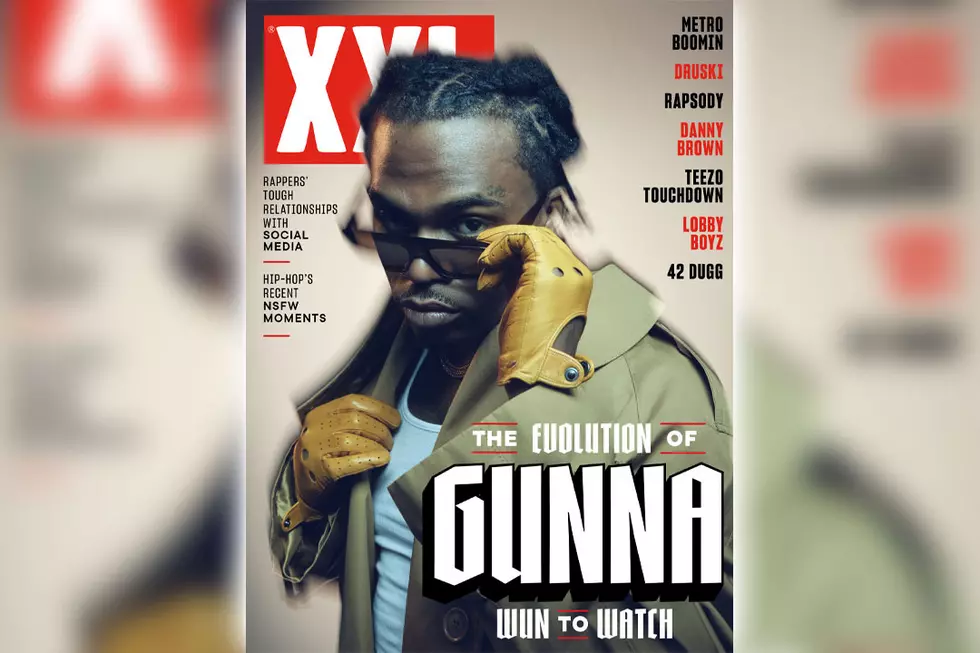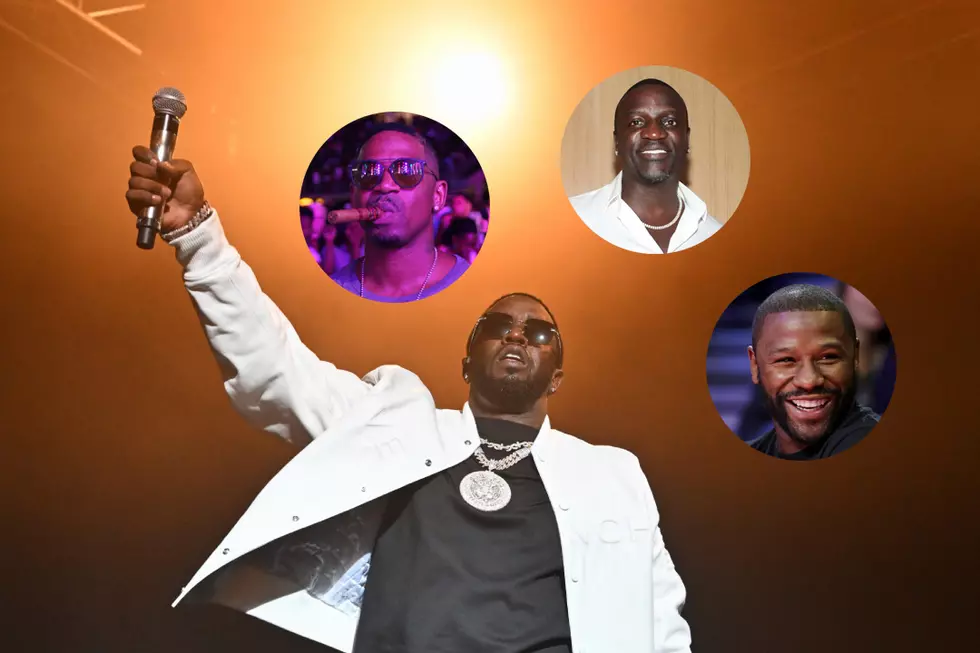
Hot 97’s Lisa Evers Bridges Hip-Hop And The Mainstream
As a lead journalist in hip-hop since its primal stages, Lisa Evers has witnessed the evolution of the genre while covering the transitions, progressions, and controversies every step of the way. From being the first mainstream correspondent to interview 50 Cent to heavily encouraging activism in the hip-hop community on her Hot 97 series Street Soldiers, Evers' hustler spirit has truly made its stamp in hip-hop and has helped push the culture into the mainstream spotlight. Also a journalist for Fox 5, Evers prides herself on knocking down the barriers in the culture, introducing hip-hop to those who don't recognize its value.
Throughout the duration of her career, Lisa Evers has helped the hip-hop community in a number of ways, from gathering supplies for Hurricane Katrina victims to most recently connecting the hip-hop community with NYC police commissioner Ray Kelly to spark conversation surrounding Stop And Frisk laws. “We had Ray Kelly live on Hot 97 for the first time ever taking telephone calls from the listeners," she says about her work in radio. "No one from his staff was screening them. So that kind of dialogue, I think, is really what we’re all about. Really about bringing people together.”
Even though Lisa has indeed already made her mark in hip-hop, she’s not quite finished yet, and is dedicated to continuing fighting for the culture. “You don’t sit there and go, 'I don’t have that, the conditions aren’t ideal.' The hip-hop attitude is, 'Let’s make it happen.'"—Miranda J. (@Randa_Writes)
Street Soldiers airs every Sunday at 9 a.m. on Hot 97.
XXL: How did you get into journalism?
Lisa Evers: I’ve always been interested in what’s going on. When I first got to the city, I was a model and I was doing volunteer crime fighting. Learned martial arts just to defend myself. It was just something that I really really loved and I wanted to do. I wasn’t trained for it in college or anything, but I did go to school. But it was just trying to get jobs like everybody , trying to get your foot in the door. First you substitute for somebody then you get a big break.
You started at Fox 5 and then you moved to Hot 97?
I started at Hot 97 first, and at that time I was working four freelance radio jobs trying to make a name for myself as a reporter. And then the Hot 97 opportunity came up. And that was something that was very unusual. The whole idea that you could do a public affairs show that was really a news-based show and that it was doing something positive was very new. And then the fact that it was on a hip-hop station when the station was starting out in the early years, it was very forward-thinking of them. Hip-hop is mainstream now; at that time it wasn’t, so there was this whole thing of the streets. But then, I knew the streets, and that had kind of been my beat all along. Then from all the work I did in the community, it just evolved from that.
I was working as a reporter for 10 10 Wins, a regular news reporter full time, and I was looking around going, “Gosh, I would really like to get into television and be a television news reporter.” And there was an [opening] here at Fox 5, so I said, "Let me just submit. Let me see if I can do a test run." I got the job 24 hours after I came in. But [the news director] understood the Hot 97 audience and he understood our Fox audience. We have the youngest demo, the hipper, more edgy type of programming, and there was a natural fit.
I was reading an interview with Rick Rubin and he was saying that, starting out in hip-hop, there was a lot of tension between staying true to the streets and merging with rock. Is that what you have seen?
Hip-hop has come into the mainstream and become mainstream, but the basic core of what I call hip-hop is still there. These are core principals that I use as a TV new reporter, as a radio talk show host, for my social media platforms—basically, the hustle. News is a hustle, 'cause I wanna beat other people to have the story. That’s very hip-hop. And I think the other things that inspire me constantly... Look at 50 Cent, who gave me his first TV interview here on Fox. People thought he was a washed up guy who had been nearly killed; that’s how they were looking at him, and we gave him that first shot. And he gave me that opportunity. He trusted me for that, for which I’ll always be grateful for him.
But I think the core of hip-hop is that entrepreneurial spirit, which is, basically, you don’t wait for opportunities, you make opportunities. That’s something I think is totally in sync with what I do at Fox as a TV reporter too. They respect my connections with hip-hop. They respect the connections with the street. And understand that a lot of big movements start out on the streets and start out in hip-hop.
Tell me a little more about Street Soldiers.
I think of Street Soldiers as my commitment to the community. The best thing about radio is the immediate interaction with the audience. People calling in, people texting us, people tweeting us, and it’s happening in real time and the show gets streamed around the country on Hot 97.com. We post the podcast along with the videos on LisaEvers.com so people can always feel connected. I think the biggest thing as a TV reporter, which is the reason why people trust me with their stories, is they know me a lot of times from the radio show. So it’s like, okay, I’m going to trust Lisa with a story to tell it and to get it right. People who don’t talk to anybody else will talk to me because of that.
I started out with a kind of a crazy thing; I was with the top modeling agency with Elite in New York and working with the president of the company at the time, and I went to Paris. But I was more interested in what I was doing on the streets. The organizing and the safety patrols and that type of thing.
During Katrina, it was the perfect merging of everything. We did a huge drive for three days—we had a gigantic truck that was parked at Madison Square Garden, which is kind of unthinkable now—and we had people dropping off things. Fox 5, my bosses here got behind it so we were doing live shots on Fox 5 telling people to come down to the truck, and then we drove the truck down to Louisiana. Diddy gave us Barbie dolls and Hot Wheels for the kids. 50 Cent sent brand new sneakers, right when the G-Unit sneakers were first breaking out. We got support from different hip-hop artists that didn’t want to be publicized or have their names out there. So we’ve done things like that.
What is one of the biggest issues now that Street Soldiers is working on tackling?
I think when we first started there was a big focus on what’s wrong. And because of the way we’ve all grown as a society and as a culture, we know what’s wrong. So the show shifted with that and my storytelling as a reporter for Fox shifted with that. Let’s give people some hope at the end of it or let’s give people a way to change it. So that’s kind of been one of the evolutions. And the radio show, too. I think we were one of the first media outlets in New York to talk about Stop And Frisk. And this was years ago. We’ve had a lot of firsts with the show and having that kind of edge, it gives me an advantage as a TV news reporter, too.
Do you feel as though a lot of times your task at Hot 97 and Fox 5 co-mingle? For example, you’ll say something on Hot 97 and then bring it over to Fox 5?
There’s definitely a synchronicity, no question. And I think that’s because hip-hop has grown up. There’s a lot of great things that have happened to me at Fox because of people knowing me at Hot 97. And then there’s a lot of people that we’ve been able to get on Hot 97 because of the relationships I’ve developed at Fox. For example, just this past year we had Police Commissioner Ray Kelly live on Hot 97 for the first time ever taking telephone calls from the listeners. No one from his staff was screening them. So that kind of dialogue, I think, is really what we’re all about. Really about bringing people together. Just be respectful enough and hear each other out. You may not agree—we knew in that case probably not, 'cause I said to them, "You have to understand, Commissioner, that half of my staff that’s here right now have been stopped and frisked, and not a single one of them has a criminal record." But he heard what they were saying, he heard the emotion and he heard the experiences. They heard what he was saying and it expanded the whole discussion.
It’s great that you’re somewhat of a bridge between the two parties. Working with Fox 5 and Hot 97, you get the hip-hop view to the more conservative population, and the conservative view to the hip-hop heads.
I think of myself sometimes as a bridge. I have friends from all different backgrounds and economic brackets and I come from a multi-racial family. So I think it’s that networking and the bridge thing, that’s definitely important. But also, too, like with our Fox 5 audience, it’s a mainstream New York audience. And the thing that’s been really interesting is Summer Jam, and we have had, for a number of years, exclusive background stage access. We were the only TV news outlet that they trusted to do that story. And it brought the concert to an audience that may never go to the concert, that would only know the biggest names of those artists. They’re not gonna know a French Montana, but they will have heard of Chris Brown. Even though French, we love him and he’s so hot right now.
But the main thing is, it lets them know what’s happening, too. The first couple times we did the Summer Jam, they put the video on the myfoxny.com website, and they got a ton of hits. So people were watching it to see what’s going on and also checking it out on the web. I feel great when people say, “Oh great, you turned me on to that. Wow, you made me see that in a different way.” That makes me feel good.
That’s a great stance to embrace, 'cause hip-hop is a culture and at times that’s overlooked. What are your thoughts on the state of New York hip-hop?
I think New York will always be the center of hip-hop. I’m trying to think if there’s an artist that has been a success everywhere else but hasn’t been a success in New York. I can’t think of any. We’re like, 10-12 million people here. We’re also the center for marketing, for advertisements, for endorsements, for the mass media. I understand why the New York artists feel a certain way, the old school phrase that’s now the new school phrase, “feel some type of way,” but there’s just opportunities for everybody. A much greater chance for new artists now to have a real career because they don’t have to go to a studio to record music anymore, they don’t have to get that money together. They’re exposed to so much more, they can make it themselves.
More From XXL


